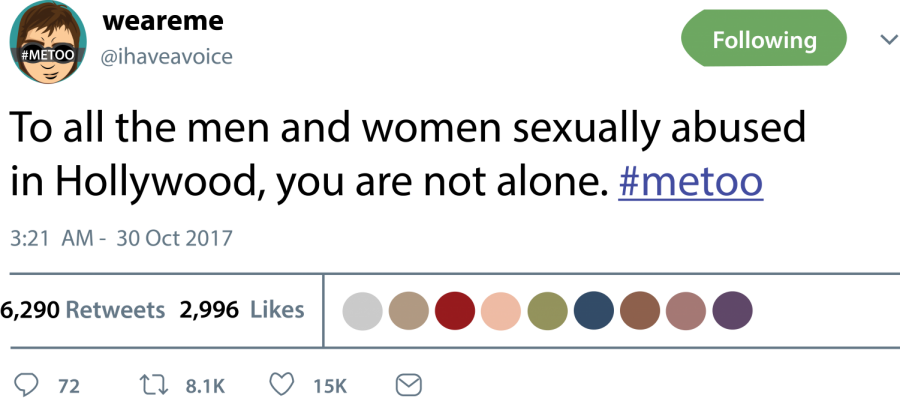Campus voices support for sexual assault campaign
November 2, 2017
Some people feel uncomfortable discussing sexual assault. However, with the multiple allegations in Hollywood, more people are addressing this topic.
Actress Alyssa Milano started the “Me Too” social media campaign to help victims add their voice to the conversation.
“It really perpetuated itself in a way that you often don’t see (in) many service announcements,” said Assistant Professor of Sociology Andrea Hunt. “So, it really became this social media phenomenon.”
Junior Kacey Womack said she loves the idea of the campaign.
“It allows people to say that they are a victim without having to explain the circumstances,” Womack said. “It also brought attention to sexual harassment, as well.”
Hunt said the campaign shows sexual assault affects both men and women.
“As the campaign was going on, I saw people changing the wording of what was copied and pasted to make it more inclusive,” she said. “Men coming forward has sent a powerful message to other male victims, because men who have been victims of sexual assault and harassment do not come forward for a variety of reasons.”
One of six women are victims of rape, and one out of 10 men are victims of rape, according to the Rape, Abuse and Incest National Network. These numbers increase on college campuses.
Senior Brittany Rogers said the amount of men sharing the post amazed her.
“I’m glad to see so many men speak up about cases that affected them or female family members,” Rogers said.
Hunt said it shocked her to see how many people posted this message.
“All of the people just on my newsfeed shocked me,” she said. “(Having) one is too many.”
Womack said it was hard for her to see the large numbers of people participating.
Hunt said she believes one of the reasons the campaign became so popular is because of the saying.
“There’s something very comforting about the words ‘me too,’” she said. “When you can sit down with somebody and use that phrase, it allows people to see that there is no shame and that they didn’t do anything wrong.”
Hunt said this is not the first case of this saying attached to a sexual assault awareness campaign. Tarana Burke, founder of Just Be Inc., began the original campaign in 2007 as a way to reach underprivileged sexual assault survivors.
“We need to recognize that this work has been going on for a long time,” Hunt said. Without this new campaign, many people would not have known of this movement before the hashtag.”
Hunt said while this campaign is a start, the work has to continue.
“There are a lot of events and a lot of work that go on in all of our communities that people can become a part of,” she said. “Even on our campus, taking part in It’s on Us or the (other) different programs we have is a good step. Once we open up the conversation and those doors, we are also opening up the process for (victims) to start healing.”












